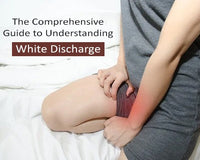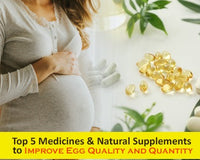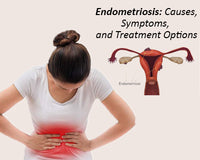Egg quality and quantity are important factors in female fertility. Egg quality refers to the ability of an egg to be fertilized and develop into a healthy embryo, while egg quantity refers to the number of eggs a woman has available for ovulation. Both egg quality and quantity can decline as a woman ages, which can make it more difficult to conceive.
Boost Your Egg Quality & quantity with Our Top-Rated Products
If you're trying to conceive and looking for natural ways to boost your fertility, consider incorporating the following top-rated products into your routine:
Here are some of the best natural options for improving egg quality and quantity:
1. Coenzyme Q10: Coenzyme Q10, or CoQ10, is a powerful antioxidant that may help improve egg quality by supporting mitochondrial function. Mitochondria are the energy-producing organelles within cells, and they play a vital role in egg development and maturation. CoQ10 may help support mitochondrial function, leading to improved egg quality.
2. Omega-3 fatty acids: Omega-3 fatty acids are essential fats that can help improve blood flow to the ovaries, leading to better quality and quantity of eggs. Additionally, omega-3s have anti-inflammatory properties that may help reduce inflammation in the body and support reproductive health.
3. L-arginine: L-arginine is an amino acid that may help improve egg quality by improving blood flow to the ovaries. Adequate blood flow is essential for supporting the growth and maturation of ovarian follicles, which contain the eggs.
4. Vitamin D: Vitamin D is important for overall health and wellbeing, and it may also help improve egg quality. Some research has suggested that vitamin D may help support hormone balance and improve egg quality.
5. DHEA: DHEA (dehydroepiandrosterone) is a naturally occurring hormone produced by the adrenal glands. It plays a crucial role in the production of other hormones, such as estrogen and testosterone. In recent years, DHEA supplementation has gained attention in the field of reproductive medicine as a potential treatment to improve egg quality and quantity in women.
While these natural options may be helpful for improving egg quality and quantity, it's important to approach them with caution and talk to a healthcare provider before starting any new treatments. Additionally, supplements should not be used as a substitute for a healthy diet and lifestyle. By making healthy lifestyle choices and working with a healthcare provider, you can improve your chances of conceiving and having a healthy pregnancy.
Frequently Asked Questions about Egg Quality and Quantity
Q1. How can I improve my egg quality and quantity?
Improving egg quality and quantity can be a complex process that involves a combination of lifestyle changes and medical interventions. Here are some strategies that help improve your chances of producing healthy eggs: Maintain a healthy diet, Exercise regularly, Manage stress, Quit smoking, Consider supplements: Certain supplements, such as Coenzyme Q10, Omega-3 fatty acids, L-arginine, Vitamin D, and antioxidants such as Vitamin E and Vitamin C, have been shown to improve egg quality and quantity.
Q2. How do I know my egg quality?
There are several ways to assess your egg quality, including:
Fertility testing: Your healthcare provider can perform a variety of fertility tests, including blood work and ultrasounds, to assess your ovarian reserve and egg quality.
Anti-Mullerian Hormone (AMH) testing: AMH is a hormone that is produced by the ovaries and can be measured with a blood test. AMH levels can provide an estimate of your ovarian reserve and help predict how many eggs you may be able to produce.
Follicle Stimulating Hormone (FSH) testing: FSH is a hormone that is produced by the pituitary gland and plays a role in stimulating egg development. Elevated FSH levels may indicate diminished ovarian reserve and reduced egg quality.
Antral follicle count: Antral follicles are small, fluid-filled sacs that contain immature eggs. Antral follicle count can be measured with an ultrasound and can provide information about ovarian reserve and potential for egg production.
Egg retrieval during IVF: If you are undergoing IVF treatment, eggs can be retrieved from your ovaries and assessed for quality by an embryologist.
Q3. How do these supplements help improve egg quality and quantity?
These supplements can help improve egg quality and quantity by providing essential nutrients and antioxidants that support healthy egg development and maturation, promote blood flow to the reproductive organs, and protect against oxidative stress.
Q4. Can supplements improve egg quality and quantity?
Yes, certain supplements, such as Coenzyme Q10, Omega-3 fatty acids, L-arginine, Vitamin D, and antioxidants such as Vitamin E and Vitamin C, have been shown to improve egg quality and quantity.
Q5. Can exercise improve egg quality and quantity?
Regular exercise can help improve blood flow to the reproductive organs, reduce stress, and promote overall health and wellbeing. However, it's important to avoid over-exercising, as this can have a negative impact on fertility and egg quality.
Q6. Can age affect egg quality and quantity?
Yes, as women age, the quantity and quality of their eggs decline. This can make it more difficult to conceive and increase the risk of pregnancy complications. However, there are still many things women can do to support their reproductive health at any age.
Q7. Can medical interventions improve egg quality and quantity?
Depending on your specific situation, medical interventions such as fertility medications, intrauterine insemination (IUI), or in vitro fertilization (IVF) may be recommended to help improve your chances of success.






